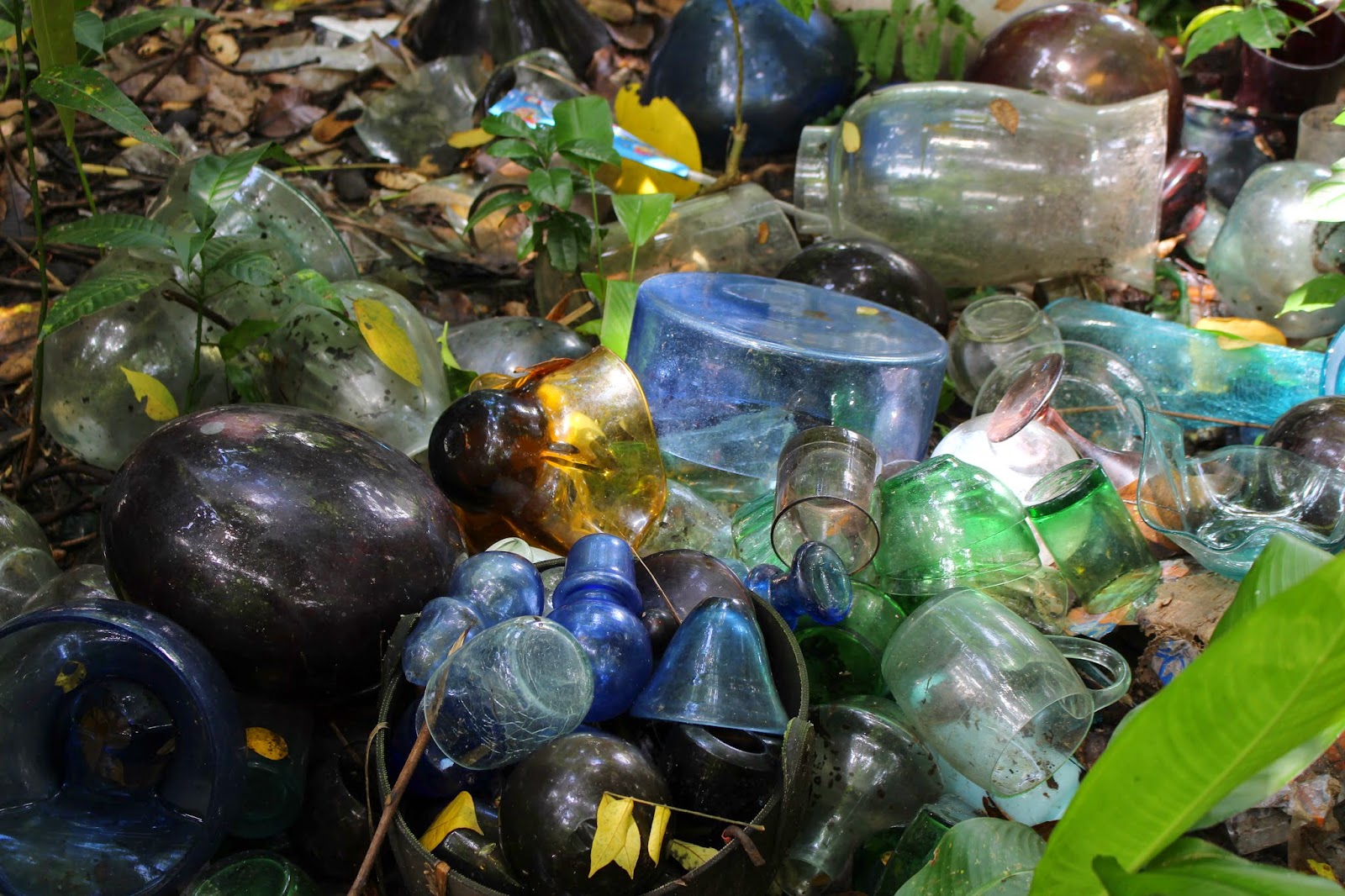We visited on Sunday the Nagar Glass Factory
which was shut down after it was destroyed by Cyclone Nargis in 2008.
What a beautiful collection of glassware they had produced: yellow,
blue, green, purple, brown and transparent glasses,
vases, trays, fruit bowls, statutes and plates. Everything was hand
blown or hand made.
The cyclone left the place in ruin and
now, even after six years, you can still see the mass of destruction it
left behind. Scattered around the garden there is a maze of broken
glass, pieces of wood, intact glassware and destroyed
tools and machinery. Only one machine continues working: the one which
smoothens the edges of the cut glass. Interesting, this old and
traditional machine now helps the owners to sell some of the remaining
glassware in case it has unfinished edges.
Slowly, the wild nature engulfs the
glassware and sometimes you will have to literally dig in the mud to
take out some pieces you like. In a sense, this is the really fun part,
you can surprise yourself by finding really nice pieces
of glassware that are still in a good shape, after which you can start
looking for other similar pieces. And because we are in the rainy
season and everything is soaked in rain you have water stagnating in the
scattered glass. And this is a perfect place
for the many mosquitos that live in that garden (that looks more like a
jungle in places).
I read about this surreal place in
different articles and blogs. If you want to know more about the story
behind this once very successful factory and its owners which were
trained by Murano glass blowers please read articles
here and
here. So we were very curious to see the place.
Interestingly enough, many locals we
asked did not know about the factory or thought the place was
completely shut down after Nargis. It is not easy to find the address
but a good taxi driver will ask around and ours even opened
the way for us when arriving because it was like entering a jungle.
From the very first few steps you can see the glass spread around the
grass and partly covered with mud.
The owners (the sons and daughters of the
founders and their extended family – all have a good level of English)
live in one of the remaining houses which has a small open space serving
as a living room with a presentation table
and shelves to showcase some of the salvaged glass wares. The TV in
this open living was broadcasting the National Geographic in English.
The owner was sitting on a chair and watching very intensely at a show
about hydro-planes. It was a bit of a contrast
between the poor and run down place and the old man being so emerged in
the National Geographic TV show. This further emphasised the surreal
atmosphere of the place.
Everything is in chaos like somebody
mentioned in another blog. And there is no interest to try to have a bit
of order and to gather the good glassware. They leave it either up to
nature to burry this treasure or up to interested
buyers to retrieve it, but they appear uninterested in bringing order.
They mentioned the lack of storage space to house all the glass, after
the cyclone tore down the factory and its storage rooms. And it would
be costly to restart the production of the
glassware. But the place has its charm and I believe the tourists are
happy to look for, discover and dig up glassware. The pieces one will
buy will have their own history. And the owners are happy to accompany
you and look with you for a matching set of glasses.
I hope many people will visit this place and buy at least one piece as a
souvenir. This is another extraordinary experience Yangon will offer
you in case you will sometime visit. But take your time once there so
that you can find the pieces
you really like.





No comments:
Post a Comment